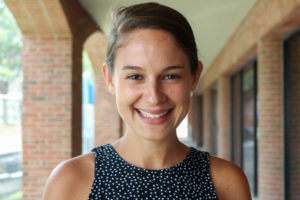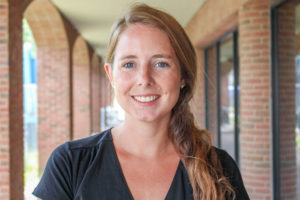This post was written by Elissa Eggers ’19
“In a gentle way, you can shake the world.”
 I first encountered this quote by Gandhi on Pinterest last fall, when I was beginning the grad school application process. I found it to be a comforting reminder that although my aspirations were large (telling people you want to save the planet can result in a lot of blank stares), I could find a way to make an impact on my own terms. While, I’ve never been a particularly loud or forceful person, I’ve never lacked conviction. Ultimately, I knew that because I would probably never be the person leading a protest or going door-to-door, I needed to find the avenue that best allowed me to use my interests and abilities to bring about change. This is what drew me to The Sustainable Innovation MBA. I knew it would hone my current skill-sets, provide me with the tools needed to make an impact, and expose me to avenues for change I didn’t yet know existed. In this regard, the program has most certainly not disappointed.
I first encountered this quote by Gandhi on Pinterest last fall, when I was beginning the grad school application process. I found it to be a comforting reminder that although my aspirations were large (telling people you want to save the planet can result in a lot of blank stares), I could find a way to make an impact on my own terms. While, I’ve never been a particularly loud or forceful person, I’ve never lacked conviction. Ultimately, I knew that because I would probably never be the person leading a protest or going door-to-door, I needed to find the avenue that best allowed me to use my interests and abilities to bring about change. This is what drew me to The Sustainable Innovation MBA. I knew it would hone my current skill-sets, provide me with the tools needed to make an impact, and expose me to avenues for change I didn’t yet know existed. In this regard, the program has most certainly not disappointed.
All of our choices have an impact. The key is figuring out in what ways, whether big or small, you can make an impact that is authentic to you.
In the mere 3 months (could it really have only be 3 months?) I’ve been in the program, I’ve met an incredible collection of human beings and been exposed to a plethora of new ideas and viewpoints. The real trick though, I’m learning, is remembering to look up and maintain perspective while trying to take in all this new information coming at you. This program is, without question, fast moving and its relentless pace can cause you to become stuck in the weeds as you focus on checking off the ever-growing collection of deliverables on your to-do list. I’ll admit, this has been me for the past few weeks. I’ve fallen down the rabbit-hole of cost models, business plans, and organizational behavior. However, my drive home from Burlington for the holidays mixed with the magic of Pinterest in periodically resurrecting old, previously viewed pins, provided me with some much-needed perspective.
My background is in retail management and I came into this program to learn more about how the product life cycle (specifically related to clothing) can become more circular as well as how to shift consumer behavior. With Black Friday and the holiday shopping season soundly upon us, I can’t think of better time to reground in why I started along this journey in the first place. What we buy matters, and how we use it can matter even more. All of our choices have an impact. The key is figuring out in what ways, whether big or small, you can make an impact that is authentic to you.
So, my question for you this holiday season and beyond, is how will you shake the world?
Photo by Fancycrave on Unsplash

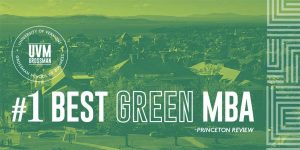 This is a significant recognition for the program and
This is a significant recognition for the program and 


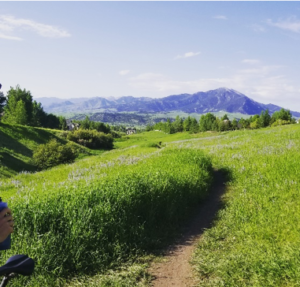 Since moving to the little city of Bozeman, Montana last fall, my increased focus on rock climbing, mountain biking (photo, left), canoeing and backpacking has brought me closer to the outdoor recreation community, a community that is at the heart of this place and many others like it. That said, I’ve felt strangely further away from my conservation roots. I devoured the article, nodding, admittedly a bit self-righteously, through all 3,000 words. Yes, yes! This is what I have been saying. Outdoor recreation does not solely predict one’s environmental attitudes! While the outdoor recreation industry is willing to make increasingly political statements about protecting our wild places, they’re yet to show they are willing to pay for that protection! And my sustainable business training rushed back: we don’t need to settle for trade-offs! Businesses can do well by doing good.
Since moving to the little city of Bozeman, Montana last fall, my increased focus on rock climbing, mountain biking (photo, left), canoeing and backpacking has brought me closer to the outdoor recreation community, a community that is at the heart of this place and many others like it. That said, I’ve felt strangely further away from my conservation roots. I devoured the article, nodding, admittedly a bit self-righteously, through all 3,000 words. Yes, yes! This is what I have been saying. Outdoor recreation does not solely predict one’s environmental attitudes! While the outdoor recreation industry is willing to make increasingly political statements about protecting our wild places, they’re yet to show they are willing to pay for that protection! And my sustainable business training rushed back: we don’t need to settle for trade-offs! Businesses can do well by doing good.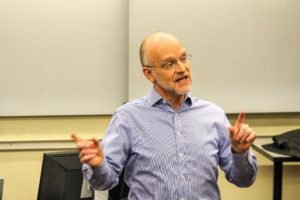 Reed got his start in advocacy and grassroots work in Michigan. He discussed the evolution of his thinking from an “us versus them” mentality (environmentalists versus business) to understanding business’s role in society (and the part that sustainability-minded professionals can play).
Reed got his start in advocacy and grassroots work in Michigan. He discussed the evolution of his thinking from an “us versus them” mentality (environmentalists versus business) to understanding business’s role in society (and the part that sustainability-minded professionals can play).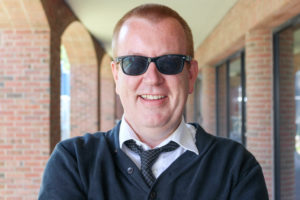 Why did you choose to attend The Sustainable Innovation MBA program?
Why did you choose to attend The Sustainable Innovation MBA program?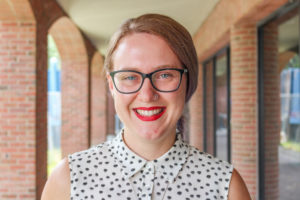 I chose to attend The Sustainable Innovation MBA program because I want to find real-world solutions for the social and environmental issues we face today. I see deficiencies in the private, public and NGO worlds that are preventing each of these sectors from properly addressing these issues. I think that business has the most opportunity to transform itself to become an engine for change in the world. I hope to be a change agent in the business world to leverage its power for good.
I chose to attend The Sustainable Innovation MBA program because I want to find real-world solutions for the social and environmental issues we face today. I see deficiencies in the private, public and NGO worlds that are preventing each of these sectors from properly addressing these issues. I think that business has the most opportunity to transform itself to become an engine for change in the world. I hope to be a change agent in the business world to leverage its power for good.